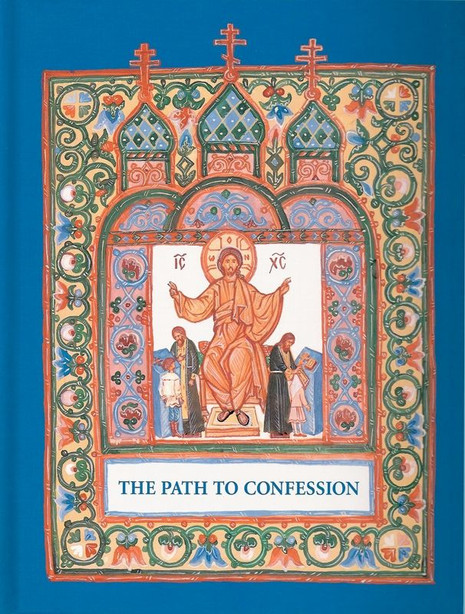Not a book you read...a book you delve into. A book to keep at hand. And come back to regularly. To deepen self-knowledge. To get a feel for doctrine and discipline, for what is going on when we confess our sins. We've culled lots of Holy Scripture. Lots of reliable teaching. Fathers ancient and modern. In small doses. Plus a healthy sampling of the Church's prayer. (Prayer teaches too.) There's the Bishops' 1976 call to revitalize parish sacramental life. (A parish living fewer than all the mysteries of Christ is not Orthodox.) And Fr. Alexander Schmemann's sober reflections on the implications of such renewal. "How," he asks, "is Confession itself to be redeemed and restored? How can it be made again an act of genuine repentance and reconciliation with God?" We flesh out his answer. Like the scribe in the Gospel we bring the new and the old from the Church's store of knowledge and wonder. If Fr. Alexander calls the common, more ecclesial, mutually evangelizing approach to Confession "a school of repentance," here is the textbook. One that really helps delve into and pursue a way of life the Spirit brings. Meditations drawn from Scripture-on the Scriptural moral teaching called the Two Ways, on the notions of covenant, and repentance, and the rôle of priests in the mysteries of Christ. St. Athanasius's telling recommendations from the Psalter for those in need of Confession The Prayer of Manasseh and Psalm 50 in fresh translations from Greek and extensively annotated. Selected penitential stichíra from the Book of Eight Tones. Rite for Confession following Synodal guidelines An examination of conscience (in fact there are several) drawn from The Apostle and keyed to the seasons of the Church year. More than a dozen prayers of forgiveness drawn from editions and the Greek manuscript tradition. A XV-century Rite for Confession And the modern Rite for Confession-Greek and Slavonic usages-in parallel columns.
- Books
-
Collections
- Theophany Sale 2026
- Hopko Collection
- Lent Collections
- AVANT Series
- Jesus Christ: His Life and Teaching Series
- Orthodox Christianity Series
- Popular Patristics Series
- Profiles Series
- St Vladimir's Theological Quarterly (SVTQ)
- The Kesich Collection
- The Schmemann Collection
- Foundations Series
- Mount Athos Collection
- Gifts
- Shop by Author
- Shop by Topic
- Call Us: 1-800-204-2665





